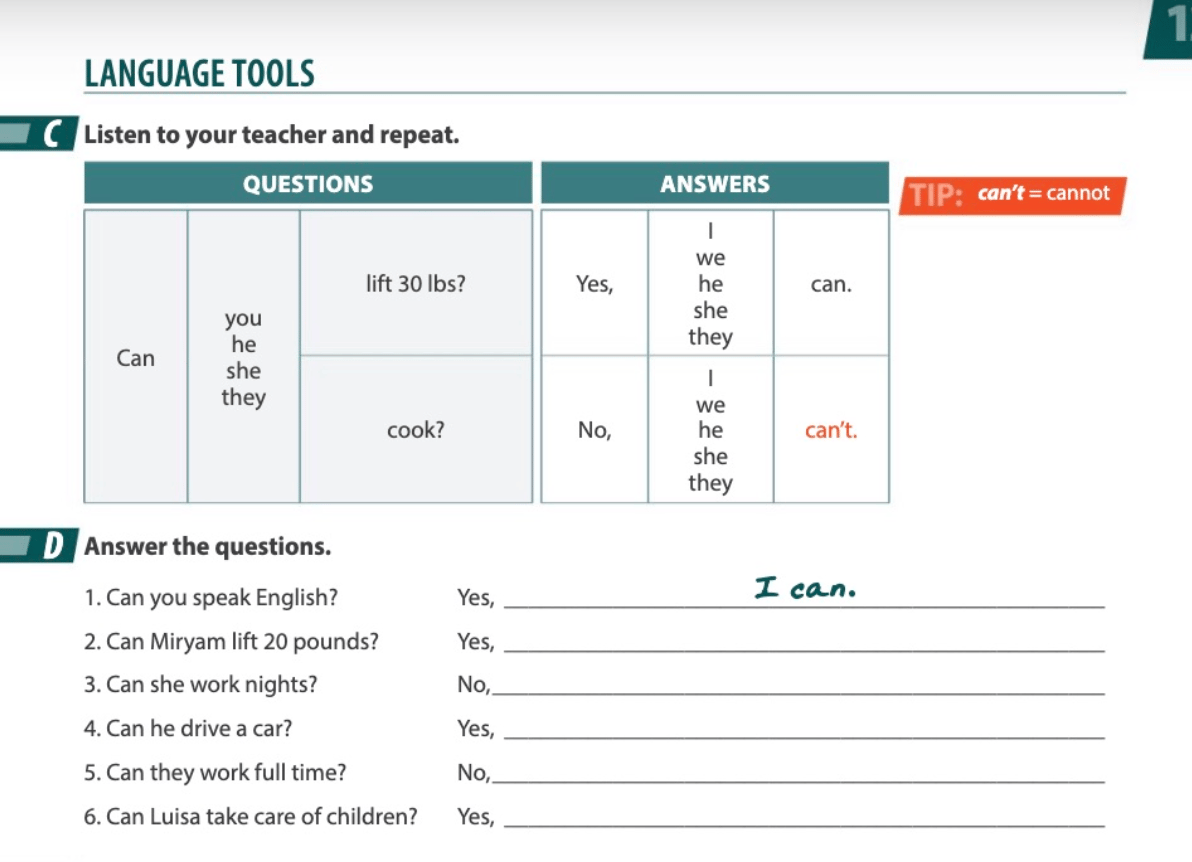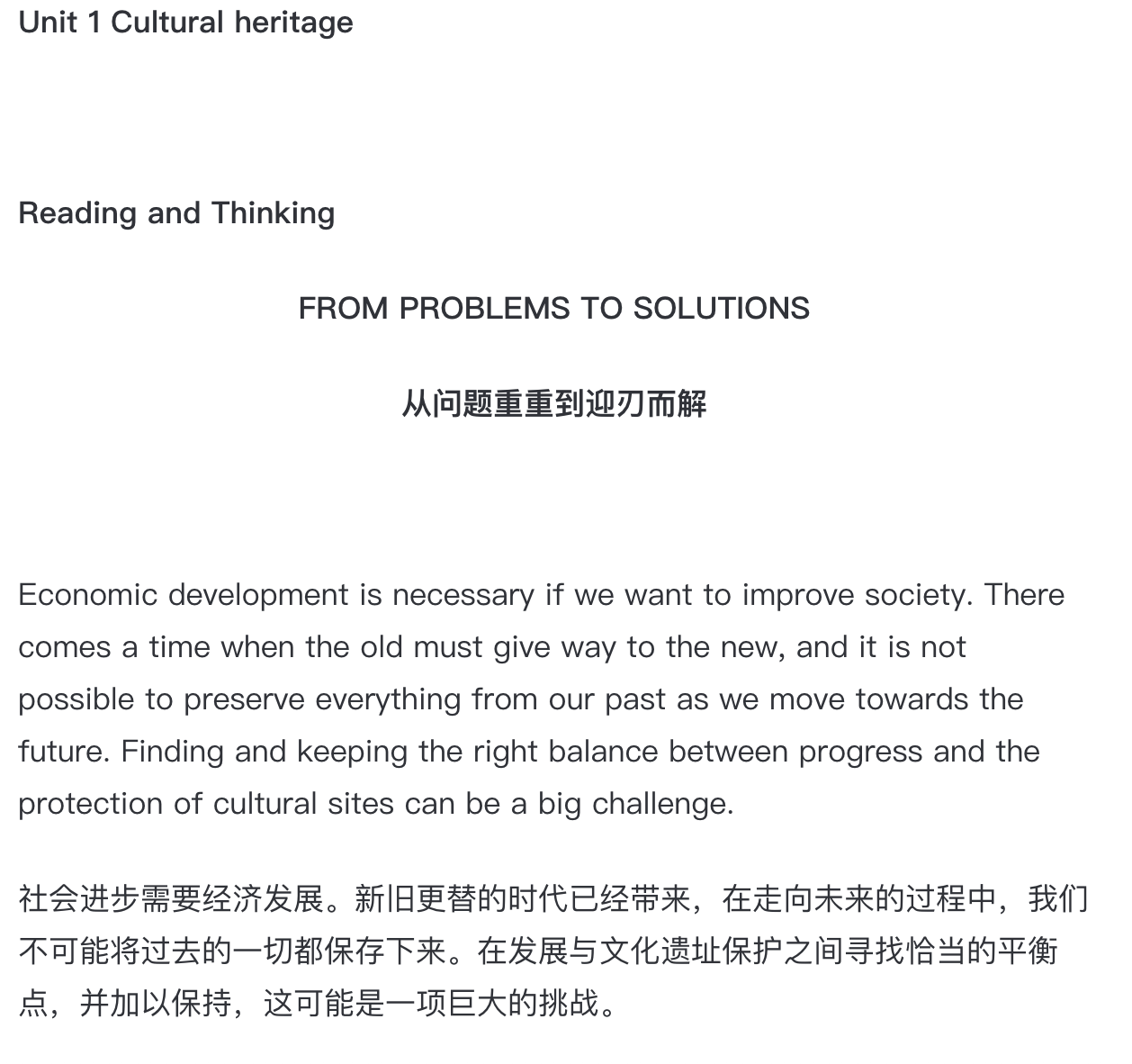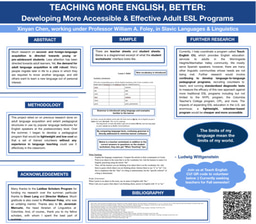Field Journal Week 5
What new ideas, challenges, or other issues have you encountered with regard to your project (this might include data collection, information that contradicts your assumptions or the assertions of others, materials that have enriched your understanding of the topic or led you to change your project, etc.)? How have these ideas or challenges shaped the bigger picture of your research? Has the scope or focus of your topic changed since you began this project? If so, how?
I haven't changed the scope or focus of my topic since I began this project, but it has given me a lot of fresh ideas of research avenues to pursue after this. As I was going through pedagogical materials by other major publishers and educational institutions, I kept coming across extremely "valenced" coursework—for example, English textbooks geared towards native Spanish speakers often had lessons centered around the language in applications for manual labor jobs, with questions such as "can you lift 30 pounds?" making their way verbatim into the grammar lessons. Attached is a photo of a portion of Lesson 1.L.12 in the Intercambio textbook—an English textbook geared towards Latin American immigrants:

Comparatively, English textbooks geared towards learners of other languages often focus more on political, economic, and academic topics. Take, for example, this bilingual "课文" (lesson text) geared towards Chinese high school students learning English:

Coming across many examples like these show to me that there is an inherent bias involved in English education. Learners are taught certain things based on a predetermined conception of their role in society. Isn't this an acculturated sort of linguistic determinism that enforces the idea that certain people "ought" to perform certain functions in society?
In the future, I hope to conduct a research project that concretely analyzes these discrepancies. I believe that language plays a huge role in economic opportunity: By interrogating why we teach what we teach, I hope that language education is able to reach past these tokenizing assumptions and create more opportunities for all.
Where does your research take place--or where is a favorite place to conduct your research? Post a photo!
I didn't take a photo of my workspace (it's very messy), but often I work in my room or I go to Butler. Occasionally, I'll take my laptop and work in a cafe, like Zelma's Caffe, Qahwah House, or Picky Barista—but often I find myself a little too caffeinated already, haha.


Please sign in
If you are a registered user on Laidlaw Scholars Network, please sign in
Cara, it was so interesting to hear about your analysis on "valenced" pedagogical material in terms of the vocabulary included in these textbooks for ELLs. I had never thought about that topic until you brought it up at our graduate student group meeting, but I found it so fascinating to consider. This would be such a cool topic to explore in the future and I'm glad to hear that your Laidlaw project is generating other potential research ideas!
Cara this is such an astute observation! I’m so grateful that you could bring this to my attention and to the attention of our community. This idea of bias in linguistic curricula and economic determinism is especially important now in the face of extreme dehumanization of immigrants and international students in this country. This example shows the depth of this dehumanization while highlighting how we put people into boxes of economic determinism that supersedes any supposed “meritocracy.” I’m also curious if we can look at this from an intersectional lens as well. I couldn’t help but notice that the first textbook made for Latin American immigrants has two lines that say, “Can he drive a car” and “Can Luisa take care of children.” This shows that the text is assuming that Latin American women will get jobs where they have to do caretaking tasks and Latin American men will get jobs where they’re required to drive. I’m curious if you think in your more informed opinion whether, beyond this small sample, there is any linguistic and economic determinism based on gender within this greater determinism. I’m really excited about your work and can't wait to see what you will do! Do you have any ideas for future projects about this? Do you think you’ll incorporate this into your second summer?
Cara this is especially interesting to me because, as you know, I have been working on a bilingual focused project in Neuroscience. I find it especially interesting in just how many ways speaking a second language can be covertly harmful to the person speaking it. Nice work!